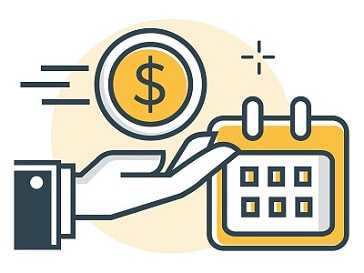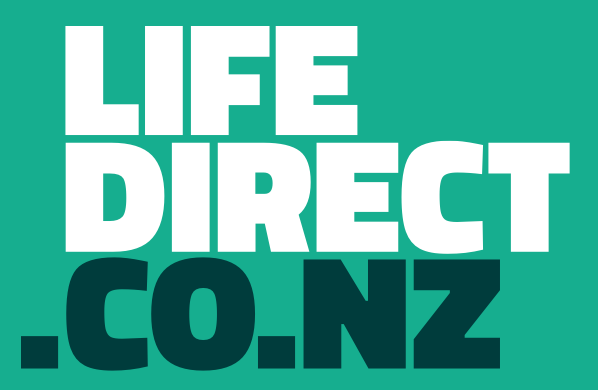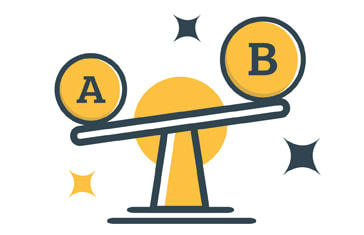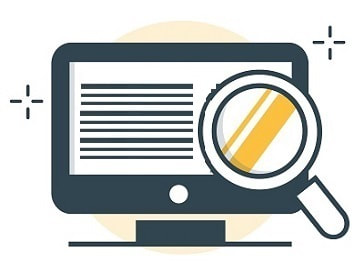Income Protection Insurance for Self Employed
Our guide looks at the costs, limitations and pros and cons of Income Protection Insurance for anyone who is self-employed.
Updated 28 April 2023
Know This First: If you are self-employed, income protection insurance is a way to provide some monthly income if you're unable to work due to sickness or injury. The benefits are designed to help pay for your financial commitments, including things like mortgage or rent, utilities, food, and even business expenses.
Know This First: If you are self-employed, income protection insurance is a way to provide some monthly income if you're unable to work due to sickness or injury. The benefits are designed to help pay for your financial commitments, including things like mortgage or rent, utilities, food, and even business expenses.
How does Income Protection Insurance help self-employed people?
Most self-employed people don't have financial protection if they are ill and cannot work because they rely on their business's income to survive. Without an income protection policy, self-employed people could quickly face financial ruin if they could not work. For this reason, self-employed people often consider taking out insurance to protect themselves from this risk. Some employers may offer long-term sick leave at the discretion of the management - self-employed workers don't have access to such resources.
To help outline what you need to know before buying a policy, our guide covers:
Important: ACC vs Income Protection Insurance
To help outline what you need to know before buying a policy, our guide covers:
- What Determines the Cost of Income Protection Insurance?
- Self-Employed Insurance Protection Insurance – Pros, Cons and Alternatives
- Who offers Self Employed Income Protection Insurance and What Does it Cost?
- Frequently Asked Questions
- Our View and Conclusion
Important: ACC vs Income Protection Insurance
- Many New Zealanders are confused by what ACC covers and whether income protection insurance overlaps. Each provides very different benefits, even if they look similar.
- Firstly, ACC only covers injuries; it doesn't cover illnesses. The majority of people absent from work long-term are suffering from an illness, not injuries. ACC's list of covered injuries is published here.
- Income Protection Insurance goes further and to make things clear, our ACC vs Income Protection guide outlines what you need to know.
|
Your guide to income protection insurance for anyone self-employed is published thanks to Life Direct
|
What Determines the Cost of Income Protection Insurance?
Several things are taken into account when buying income protection policies. Below are the primary things that will affect the cost of the premiums you will have to pay:
- Age – As with most insurance policies, your age will significantly impact the premiums you will have to pay. As you get older, the probability of illness increases, and as a result, the older you are, the more you are likely to pay for income protection insurance.
- Amount of coverage – The amount of coverage you choose plays a significant role in the cost of your premiums. However, most policies are very flexible, allowing you to select a level of coverage that works for your budget but still provides the income replacement you need. The higher the payout you choose, the more expensive the policy will be.
- Length of coverage – Similar to choosing the amount of coverage you want, you can decide how long you want the coverage to last. You can typically choose between a short-term policy that covers you for
- 1-2 years or one that covers you right up until retirement. As you would expect, the longer the length of the policy, the higher your monthly premiums will be.
- Lifestyle Factors – If you are generally healthy and avoid smoking, the cost of your policy will be lower as the insurance companies know that those that live healthy lifestyles are less likely to get sick than those that do not. As a result, those that are healthy may pay lower rates than those who are not.
- Job Risks – There are certain types of inherently risky jobs, and anyone with a relatively more dangerous job will typically pay higher premiums. For example, office workers will usually have lower premiums than construction workers because they have a much higher risk of injury.
- Pre-existing health conditions – If you have had any serious medical issues in the last five years, they will likely be considered pre-existing conditions by the insures. These pre-existing conditions could prevent you from getting coverage, increase your rates, or be excluded from coverage. The insurance company will review these conditions when you apply for coverage, decide whether to cover those or not and if they do, whether they will increase your premiums because of them.
- The deferral period – This is the amount of time you will have to wait before your payments begin. It can be as short as one week with some policies. This is a critical element of your policy to consider, as you will have to decide how long you can go without income before your income protection policy starts to pay. The shorter the deferral period, the higher the probability you will make a claim. As a result, the policies with the shortest deferral period will cost more.
What's included and excluded from Income Protection Insurance policies?
For self-employed people who choose to buy income protection insurance, the policies are comprehensive and will cover nearly any health issue or injury you might suffer from. There are generally only a few critical exclusions. If you can't work, even if it's caused by something as simple as a broken ankle, your income protection insurance should cover you. However, it is crucial to understand how the insurer defines incapacity in your policy.
Some things are considered limitations or exclusions for income-protection policies, which are fairly standard on most policies. If these things happen and you try to file a claim, it will likely be rejected. They are those involving or caused by:
Some things are considered limitations or exclusions for income-protection policies, which are fairly standard on most policies. If these things happen and you try to file a claim, it will likely be rejected. They are those involving or caused by:
- Illegal drug use
- Self-harm
- Alcohol abuse
- Criminal activity
How do insurers define incapacity?
There are several definitions that insurance companies use to define incapacity in your policy. It's important to understand that depending on the definition they use, your level of cover can be significantly affected. The three primary definitions from the most comprehensive to the least are a follows:
Own Occupation
Suited Occupation
Any Occupation or Work Task
Own Occupation
- This is the best, most comprehensive definition of incapacity and will cover you in most cases. Own occupation means that the policy will pay out if you can't perform your specific job role.
- As an example, if you're a builder and have to take time off due to stress, the insurance company wouldn't expect you to go back to work in a lesser role (i.e. bricklayer).
- You would receive the benefits of the policy for as long as the policy lasts or until you're well enough to go back to your specific position.
Suited Occupation
- This is a little less comprehensive of a definition than own occupation. Under this definition, the insurance company would expect you to return to work if, using the same example, as above if there was another job you could do that would be less stressful.
- This could be a significantly different job and could have an impact on your income.
- As a result, it is essential to understand this definition when you choose a policy. For those with manual or high-risk jobs, this may be the only definition available to you.
Any Occupation or Work Task
- This is the most strict definition and generally one we do not recommend as being suitable.
- Simply put, if you're capable of performing any basic task, like walking, bending, hearing, and climbing, you would have to return to work, regardless of whether that means you would be working in a completely different industry or profession.
- Policies that use this definition of incapacity only protect you from severe illnesses and injuries. They don't provide income protection coverage that many, especially those that are self-employed, need.
Self-Employed Insurance Protection Insurance – Pros, Cons and Alternatives
Insurance protection policies solve a problem at a cost. Each insurance company has its own policies so coverages can vary; below is a broad summary of how the pros and cons of policies, how they work and what they cover.
Pros:
Cons:
Pros:
- A policy can cover up to 50-75% of your monthly income.
- If you operate a limited company, a policy will compensate for lost dividend payments
- You can choose when payments start and can start receiving payments in as little as two weeks.
- You can purchase a short-term policy or protect yourself right up until retirement.
- Depending on the specific terms of your policy, you'll receive monthly income replacement until you're well enough to return to work.
- Income protection policies provide peace of mind that should you ever fall ill can't work for a (qualifying) reason, your bills would be covered.
- You wouldn't need to burn through all of your savings.
- It's a flexible type of insurance and can be configured to your specific requirements.
- If you're injured, you'll still receive ACC (although you won't receive two payments, just the higher or the ACC allowance or insurance policy).
- A policy can provide some much-needed reassurance for those switching from employment to self-employment.
- Most illnesses and injuries are covered, and there are usually only a few exclusions.
Cons:
- Cost – Policies are not cheap; our What Does it Cost section shows the high annual cost of even basic 2 and 5-year policies.
- Maximum cover - Insurers pay up to 75% of your salary, which may not be enough if your living costs are stretched already.
How is Income Protection Insurance different from Mortgage Repayment Protection Insurance, Critical Illness and Trauma Insurance, or Redundancy Insurance?
Income Protection Insurance is a long-term policy that provides benefits to those with health-related work absence, not redundancy. The policies generally last until for the short term (i.e. 2-5 years) or the long term (i.e. until you retire).
For example, a 35-year old who has an Income Protection Policy and makes a claim could receive a tax-free income for the next 30-35 years, depending on his retirement age. Additionally, if he returned to work at a lower salary, he could claim a proportional benefit.
Redundancy insurance, Critical Illness and Trauma Insurance and Mortgage repayment protection insurance offer shorter-term, usually with a maximum of 1-2 years, depending on the insurer.
Important:
For example, a 35-year old who has an Income Protection Policy and makes a claim could receive a tax-free income for the next 30-35 years, depending on his retirement age. Additionally, if he returned to work at a lower salary, he could claim a proportional benefit.
Redundancy insurance, Critical Illness and Trauma Insurance and Mortgage repayment protection insurance offer shorter-term, usually with a maximum of 1-2 years, depending on the insurer.
Important:
- There are many different options you have to choose from when selecting an income replacement policy.
- If you are self-employed, there are additional considerations you will have to take into account.
- For this reason, it is important you carefully select the right policy to ensure you and your family have an appropriate financial safety net in place should something happen to you.
Who offers Self Employed Income Protection Insurance and What Does it Cost?
Income Protection Insurance is available for self-employed individuals and contract workers. There are no specific policies for self-employed workers but the costs vary between industries (i.e. self-employed builders will pay more than self-employed teaching consultants in most cases given the risks). Our pricing samples confirm this below.
When working out a benefit to be paid, your base income may be calculated a little differently. Employed workers base their benefit on their gross annual salary, whereas self-employed workers need to consider their drawings or profits after deduction of trade expenses etc. If you are self-employed and submit a claim, you may need to prove your income.
Our comparison considers three self-employed professionals below:
When working out a benefit to be paid, your base income may be calculated a little differently. Employed workers base their benefit on their gross annual salary, whereas self-employed workers need to consider their drawings or profits after deduction of trade expenses etc. If you are self-employed and submit a claim, you may need to prove your income.
Our comparison considers three self-employed professionals below:
1. The Tradesman - Builder/Carpenter/Plumber
35-Year-Old Male, Non-Smoker
35-Year-Old Male, Non-Smoker
- $100,000 Annual Salary ($6,250/Month payout - 75% of gross income)
- 4 weeks claim wait period
Insurer |
Annual Premium (2 Year Payment Period) |
Annual Premium (5 Year Payment Period) |
Annual Premium (Benefit Paid to Age 65) |
Annual Premium (Benefit Paid to Age 70) |
$1,181.60 |
$1,501.64 |
$2,319.53 |
Not Offered |
|
$1,281.63 |
$1,512 |
$2,439.23 |
$2,590.24 |
|
$1,558.38 |
$2,023.18 |
$3,153.70 |
$3,219.18 |
|
$1,490.03 |
$1,868.97 |
$2,968.93 |
$2,999.74 |
|
$1,493.14 |
$1,858.67 |
$3,080.85 |
$3,384.64 |
2. The Bus/Coach Driver
45-Year-Old Male, Non-Smoker
45-Year-Old Male, Non-Smoker
- $70,000 Annual Salary ($4,375/Month payout - 75% of gross income)
- 4 weeks claim wait period
Insurer |
Annual Premium (2 Year Payment Period) |
Annual Premium (5 Year Payment Period) |
Annual Premium (Benefit Paid to Age 65) |
Annual Premium (Benefit Paid to Age 70) |
$2,098.58 |
$3,019.75 |
$4,607.88 |
Not Offered |
|
$1,826.98 |
$2,693.70 |
$4,322.40 |
$4,841.05 |
|
$2,704.91 |
$3,946.74 |
$6,148.64 |
$6,447.54 |
|
$2,157.68 |
$3,002.93 |
$4,583.64 |
$4,675.06 |
|
$2,308.45 |
$3,425.74 |
$5,162.76 |
$6,207.11 |
3. The Photographer
40-Year-Old Female, Non-Smoker
40-Year-Old Female, Non-Smoker
- $80,000 Annual Salary ($5,000/Month payout - 75% of gross income)
- 4 weeks claim wait period
Insurer |
Annual Premium (2 Year Payment Period) |
Annual Premium (5 Year Payment Period) |
Annual Premium (Benefit Paid to Age 65) |
Annual Premium (Benefit Paid to Age 70) |
$2,044.52 |
$2,790.46 |
$4,526.31 |
Not Offered |
|
$1,712.98 |
$2,288.90 |
$4,059.29 |
$4,387.68 |
|
$2,947.57 |
$3,926.53 |
$6,233.22 |
$6,553.08 |
|
$2,297.93 |
$2,952.60 |
$4,572.23 |
$4,729.73 |
|
$2,447.20 |
$3,112.73 |
$4,974.64 |
$5,645.96 |
Important: Income Protection Insurance is widely available and online quotes are quick to obtain. Before buying any policy, make sure you understand the cover level (i.e. how much it will pay out), exclusions (i.e. what you can't claim for) and ongoing costs (i.e. what you have to pay every week, month or year etc).
Frequently Asked Questions
You'll likely have questions about what cover is right for you - we have answered common questions below to help you understand more about policies, cover and claims.
Can I pause my income protection coverage if I become unemployed or decide to take a career break?
Some insurance companies offer a 'career break' or 'non-working option, which means that your coverage can be suspended for a certain amount of time. During this time, you will not have to pay your premiums, but you will also not be able to make a claim until you decide to restart your policy.
In most cases, you will not have to provide any new information about your health or medical condition to resume the policy. Some insurance companies have an option that allows you to continue the cover at a reduced amount, so you still have some coverage, although a lesser amount, should you become ill during this time. If this feature is of interest to you, you should check to see if your policy includes this before you purchase a policy.
In most cases, you will not have to provide any new information about your health or medical condition to resume the policy. Some insurance companies have an option that allows you to continue the cover at a reduced amount, so you still have some coverage, although a lesser amount, should you become ill during this time. If this feature is of interest to you, you should check to see if your policy includes this before you purchase a policy.
Is there a standard policy that those who are self-employed should choose?
When it comes to income protection, as with most other types of insurance, there are many options that you can choose from. The right policy and coverage for you may be very different than for your neighbour. When choosing a policy, you'll need to consider your financial situation and choose a policy with benefits right for your unique financial, business, and personal situation.
How much will income protection insurance cost me?
The prices of income protection policies vary between companies and according to the specific benefits you choose. The premiums are calculated based on your required cover level, age, current health, occupation, your age, smoker status and the length of coverage you require.
Self-employed individuals are, in many cases, higher risk to insurers compared to full-time employed workers due to the industries they work in (construction vs office etc). Before making any decision, make sure the policy you're looking at fits your needs and budget. You'll need to understand the implications of any pre-existing conditions you may have and their impact on various insurance companies.
Self-employed individuals are, in many cases, higher risk to insurers compared to full-time employed workers due to the industries they work in (construction vs office etc). Before making any decision, make sure the policy you're looking at fits your needs and budget. You'll need to understand the implications of any pre-existing conditions you may have and their impact on various insurance companies.
What happens if I change jobs?
Most insurance companies don't mind if you change jobs and don't require you to tell them. However, if you go from an office job to a high-risk construction job, you'll need to let your insurance company know. If your salary changes, you might want to discuss increasing or decreasing your cover accordingly.
Can I cancel an Income Protection Insurance policy?
Yes, but only during a "cooling off period". This is usually within five working days of agreeing to a policy. If you don't cancel within the cooling-off period, there are very few options for refunds later.
Income Protection Insurance for Self Employed - Our View and Conclusion
- Self-employment can be flexible, but it is also costly and financially risky. Having a fall-back policy to cover an agreed amount of your income should you fall ill is helpful, but it also is another ongoing bill.
- Many New Zealanders are confused by what ACC covers and whether income protection insurance overlaps. ACC only covers injuries; it doesn't cover illnesses, whereas Income Protection Insurance goes further (our ACC vs Income Protection guide outlines what you need to know should you need further guidance).
- If you have large ongoing payments falling due (i.e. mortgage repayments, young children and other big-ticket expenses), protecting yourself from the risk you get seriously ill is worth considering.
- What's right for you comes down to what you can afford. If you struggle to build or maintain an emergency fund, a policy could be an effective way to protect your family from hardship.







